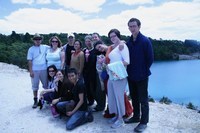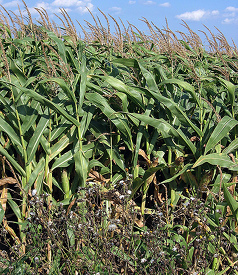
Researchers from the Sage Colleges in Troy, NY, reported today their findings that specific bacteria common to our environment may increase learning behavior. Dorothy Matthews and Susan Jenks, who conducted the study, shared their findings with those in attendance at the meeting of the American Society for Microbiology in San Diego.
The bacteria, Mycobacterium vaccae, is well known to scientists, as the dead bacteria is being tested as immunotherapy for asthma, cancer, depression, psoriasis, dermatitis, eczema and tuberculosis. M. vaccae, so named because it was first discovered in cow dung in Austria, is naturally found in soil, and it is inhaled when people spend time outdoors, especially where there are plants and trees.
It was found in previous research that heat-killed M. vaccae had anti-depressant effects on mice by stimulating the growth of neurons and levels of serotonin. Mathews and Jenks, however, were curious about the effects of live M. vaccae, and fed live bacteria to an experimental group of mice to see how it would effect their navigation of a maze.
The mice that were fed the live M. vaccae learned the maze twice as fast as the control group, which had not received M. vaccae, and the experimental group exhibited less anxiety as well.
Some time later, the experimental group was taken off the bacteria and tested again against the control group. This time, the experimental mice did not learn the maze as fast as when they were given the bacteria, but they were still faster than the control mice.
In yet a third maze learning experiment, conducted after the mice had rested for three weeks, the experimental mice ran faster than the controls, but not fast enough to make a statistically significant difference. This suggested to the researchers that the effects of M. vaccae are temporary.
“This research suggests that M. vaccae may play a role in anxiety and learning in mammals,” says Matthews. “It is interesting to speculate that creating learning environments in schools that include time in the outdoors where M. vaccae is present may decrease anxiety and improve the ability to learn new tasks.”
Take a walk outdoors when you take a break. You’ll return more relaxed and smarter!
sources: Medical News Today, Wikipedia

